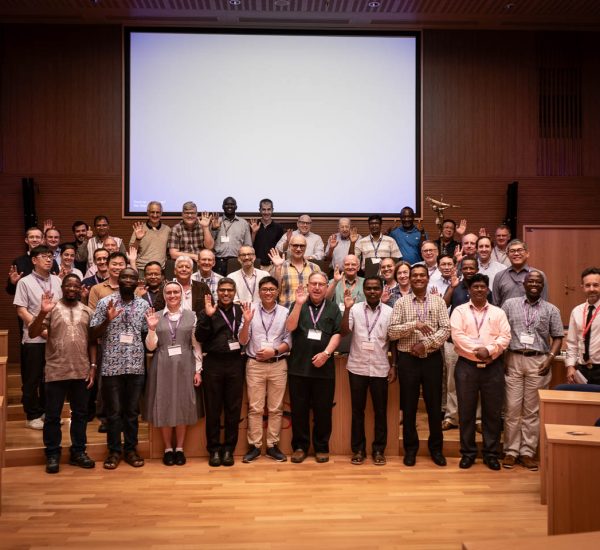‘Rejoice ye’ – Gaudete – appears to be a late 16th century Carol set with an older medieval tune. It’s bold, lively rhythm, captures well the joyous mood of the Carol as it invites us to celebrate the birth of Christ. The lyrics and the pulsating rhythm work especially well when sung acappella as here by the Jesuit students of the Gesù, Rome.
As is so often the case with traditional carols, their simple verses often contain a compressed theology expressing wonder at the event of Christ’s nativity. The text and the music do this by juxtaposing simple statements, blending the facts of the birth with its meaning. This draws us into the strange paradoxes of the Nativity, that then open up into wonder. Each verse tells of the grace of the incarnation, not just some remembered past event but present to us now in this moment – ‘the time of grace has come’ ( Tempus adest gratiæ). This is the source and the cause of our rejoicing: Gaudete! the child is now here ‘for us’. Like every Carol, the effect of Gaudete is to make us present with the shepherds and the kings. We become participants not onlookers or spectators. That, too is the grace of the music. The ancient Christmas proclamation, the prophecy of Isaiah is fulfilled in our presence, ‘for unto us a child born, unto us a son is given….’
Like any well crafted Carol, it goes on echoing in us after the singers have ceased. Easily remembered and absorbed the rhythms enter into our interior space and memory; unfolding until we, too, are rejoicing, filled now with an interior joy and wonder – a nativity so simple and human, overturning all our categories; not a threat but a gift we could never have imagined, opening up to an inexhaustible mystery. As Gaudete says, God has become man with nature marvelling – homo factus est, natura mirante (verse 3).
Maybe in these days of Christmas we can allow nature to show us the way to be before the mystery. With all the darkness and confusion of this year, to come with a simplicity and humility; to be still before the Christ child who can teach us to have faith again, how to hope again, how to live again in a better, more loving way. Mundus renovatus est – the world has been renewed! And we pray that it may be so. Amen



